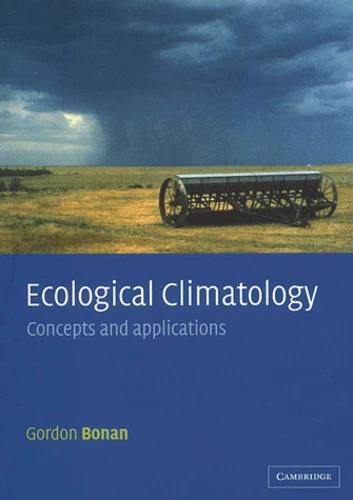Ecological Climatology. Concepts And Applications
Par :Formats :
- Paiement en ligne :
- Livraison à domicile ou en point Mondial Relay indisponible
- Retrait Click and Collect en magasin gratuit
- Nombre de pages690
- PrésentationBroché
- Poids1.515 kg
- Dimensions17,5 cm × 24,5 cm × 3,2 cm
- ISBN0-521-80476-0
- EAN9780521804769
- Date de parution10/08/2002
- ÉditeurCambridge University Press
Résumé
Ecological Climatology is an interdisciplinary framework to understand the functioning of terrestrial ecosystems in the climate system. It examines the physical, chemical, and biological processes by which landscapes affect and are affected by climate. The central theme is that terrestrial ecosystems, through their cycling of energy, water, chemical elements, and trace gales, are important determinants of climate. The coupling between climate and vegetation is seen at spatial scales from stomata to vegetation geography and at timescales of near instantaneous to millennia. In particular, natural vegetation dynamics and human land uses and land management are important mechanisms of climate change. The boreal forest-tundra ecotone and the North African Sahel are examples of climate-ecosystem dynamics at the biogeographical spatial and temporal scale. Deforestation, desertification of drylands, cultivation of grasslands, reforestation following farm abandonment, and urbanization are case studies of how human uses of land alter climate.
Ecological Climatology is an interdisciplinary framework to understand the functioning of terrestrial ecosystems in the climate system. It examines the physical, chemical, and biological processes by which landscapes affect and are affected by climate. The central theme is that terrestrial ecosystems, through their cycling of energy, water, chemical elements, and trace gales, are important determinants of climate. The coupling between climate and vegetation is seen at spatial scales from stomata to vegetation geography and at timescales of near instantaneous to millennia. In particular, natural vegetation dynamics and human land uses and land management are important mechanisms of climate change. The boreal forest-tundra ecotone and the North African Sahel are examples of climate-ecosystem dynamics at the biogeographical spatial and temporal scale. Deforestation, desertification of drylands, cultivation of grasslands, reforestation following farm abandonment, and urbanization are case studies of how human uses of land alter climate.

